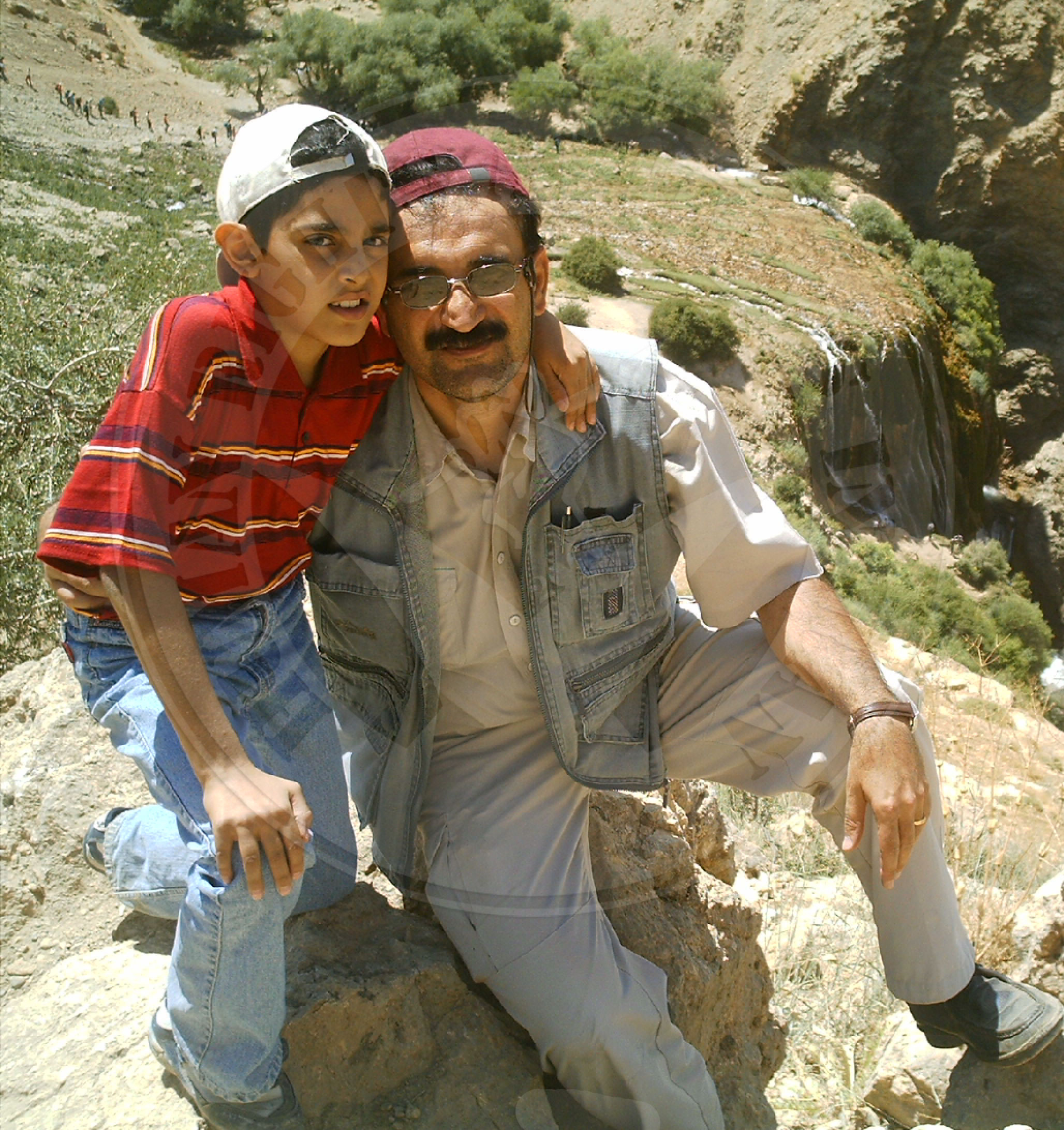
Gholamreza Khosravi Savadjani and his son
Paris, 3 June 2014 – The execution of Gholamreza Khosravi Savadjani in Rajaishahr prison on Sunday 1 June 2014 was strongly condemned by FIDH and its member organisation, the League for the Defence of Human Rights in Iran (LDDHI).
“Gholamreza Khosravi Savadjani was executed on a charge for which the substantiating evidence was never produced. He was regrettably executed for his political views,” said Karim Lahidji, FIDH President . “We condemn the unfairness of his trial, which was held in complete disregard for Iranian criminal law, and Iran’s obligations under the International Covenant on Civil and Political Rights”.
Mr Khosravi Savadjani was arrested in Rafsanjan, Kerman province, in 2008 and was tried on charges related to his financial donations and providing of information to the People’s Mujahedin Organisation of Iran (PMOI) – a proscribed group based in Iraq – and was sentenced to six years imprisonment. He had previously served five years in prison 1981-1986 on charges related to his support for the PMOI.
While serving his new 6-year prison sentence, a new charge of moharebeh (waging war against God) was brought against Khosravi Savadjani. That charge can carry the death penalty. He was retried under this charge in November 2009 by Branch 26 of the Islamic Revolution Court, which ruled that it was not competent to try him, because he had already been tried and sentenced based on the same charge in 2008. However, the Supreme Court overturned the ruling and sent the case back to the same branch. The court issued the first death sentence on him, but it was overturned by the Supreme Court. He was sentenced to death again in 2010, a decision which was upheld by the Supreme Court in April 2012.
Gholamreza Khosravi Savadjani had been transferred from Section 350 of Evin prison in Tehran to the Quarantine Section of Rajaishahr prison near Karaj on 28 May and then to a solitary cell. It is to be noted that he was sent to solitary confinement in mid- April for nearly two weeks, after the Evin prison guards and other security agents attacked Section 350 in Evin prison and beat up many prisoners.
Both Iranian and international law provide that prisoners may not be retried on the same evidence. FIDH recalls that even the domestic flawed revised Islamic Penal Code that was adopted in May 2013, has slightly modified the provisions concerning the charge of moharebeh and defined it to include only people who have taken up arms. “The Iranian judicial authorities have never claimed that Mr Khosravi Savadjani used weapons. It may only be concluded that Mr Khosravi Savadjani faced an extremely unfair trial influenced by the intelligence and security services.” added Karim Lahidji.
FIDH notes that more than 300 officially acknowledged and secret executions have taken place in Iran since the beginning of 2014. FIDH reiterates its firm opposition to the death penalty for all crimes and in all circumstances, as it considers it an inhumane treatment and a violation of the inalienable right to life.
FIDH: Arthur Manet/ Audrey Couprie: press@fidh.org
LDDHI: lddhi@fidh.org
